3 Times Cheating Caused a Scandal at the Paralympic Games – What Happened?
These situations, often involving faking and using extraordinary measures like medications, have affected athletes and sparked debates online. Let’s discover the three major cheating scandals that have left their mark on Paralympic history.
Valentina Petrillo will make history at the 2024 Paralympic Games as the first transgender woman to compete. The 50-year-old sprinter, who transitioned in 2019, will represent Italy in the women’s T12 200m and 400m events.
Her journey to the Paralympics has been long and complex. Despite being born with a degenerative eye condition, she defied the odds and triumphed in the male T12 category from 2015 to 2018. She secured an impressive 11 national titles.
In 2018, with the support of her wife, Petrillo started to live openly as a woman and initiated hormone therapy the following year.
The transition brought significant changes to her body and athletic performance. She described to the BBC how her transition had impacted her physically and emotionally. For example, her metabolism had changed, leading to weight gain and anemia. She also noted a decrease in physical strength, sleep disturbances, and mood swings.
Despite these challenges, Petrillo has continued to compete successfully. She has achieved success on the world stage, earning medals at the World Para Athletics Championships and the National Para Championships. However, her participation has sparked debate about fairness in women’s parasports.
Sports scientist, Ross Tucker, said reducing testosterone levels isn’t enough in this case. He explained, “Some of the changes that testosterone causes, like the increased muscle mass, increased strength, the shape and size of the skeleton, those changes don’t go away.”
His worries mirror those of many who question if transgender women should be allowed to compete with cis women at all. Moreover, many think her participation is hurtful.
The Controversy
Mariuccia Quilleri is an attorney for athletes who are against Petrillo’s classification. She expressed that inclusion has been put over fairness in this case. This issue highlights the lack of unified policies for transgender athletes in parasports.
Currently, the International Paralympic Committee (IPC) allows individual sport governing bodies to set their own rules. This has led to significant differences between World Athletics’ rules and those of World Para Athletics.
As it stands, World Athletics has rules on transgender women in female categories at international events. Meanwhile, World Para Athletics lets individuals recognized as women compete in the right category.
IPC President Andrew Parsons understands the issue of transgender athletes’ participation and believes the sports community should use science to create better solutions for inclusion. He emphasized the need for a unified, evidence-based approach across all sporting bodies to address this issue fairly.
Meanwhile, this controversy extends beyond policy-makers to athletes themselves. German Paralympian Katrin Mueller-Rottgardt voiced concerns about potential advantages for her competitor. She suggested that Petrillo’s history of training as a man meant she was physically different. This same issue has been debated many times on social media.
The Online Reactions
The situation surrounding Petrillo’s eligibility has spilled over onto the digital landscape, where opinions are flying fast and furious. One user on X (formerly Twitter) stated, “It is completely wrong and unfair that you are allowing a man to compete in the Women’s running [sic].“
Another user drew parallels to the Olympic Games and wrote, “It’s nice to see the Paralympics keeping parity and equality with the Olympics by being equally unfair to women [sic].“
The sentiment of unfairness was echoed by another user who exclaimed, “No no no how unfair to REAL paralympic women competitors!!!!! [sic].” Someone else wrote, “Should Petrillo be disqualified? Yes.” But Petrillo won’t let these comments get in her way.
Her Reaction
Despite the outrage, she remains undeterred by the negativity that surrounds her. Petrillo views this as an opportunity to promote inclusivity and educate people about transgender athletes.
She also expressed her joy and gratitude for the opportunity to compete. She has put a lot of dedication and hard work to earn her spot. Through the BBC, the athlete event thanked the Italian Paralympic Federation and the Italian Paralympic Committee for their support, especially because they see her not only as an athlete but as a person.
Responding to her critics, Petrillo firmly stated that her gender identity is not a matter of choice. It’s an essential and integral part of her being.
She also expressed that transgender athletes rarely win in women’s categories. Therefore, the concerns of any unfairness are overstated in her opinion. In the meantime, the athlete remains focused on her future performance and the positive impact she hopes to make.
But her controversy is not the only issue that has caused a stir in the sports world.
The Discus Thrower
Another scandalous incident happened at the Tokyo 2020 Paralympic Games. Indian para-athlete Vinod Kumar found himself at the center of a classification scandal. He had initially won the bronze medal in the discus throw event with an Asian record of 19.91 meters.
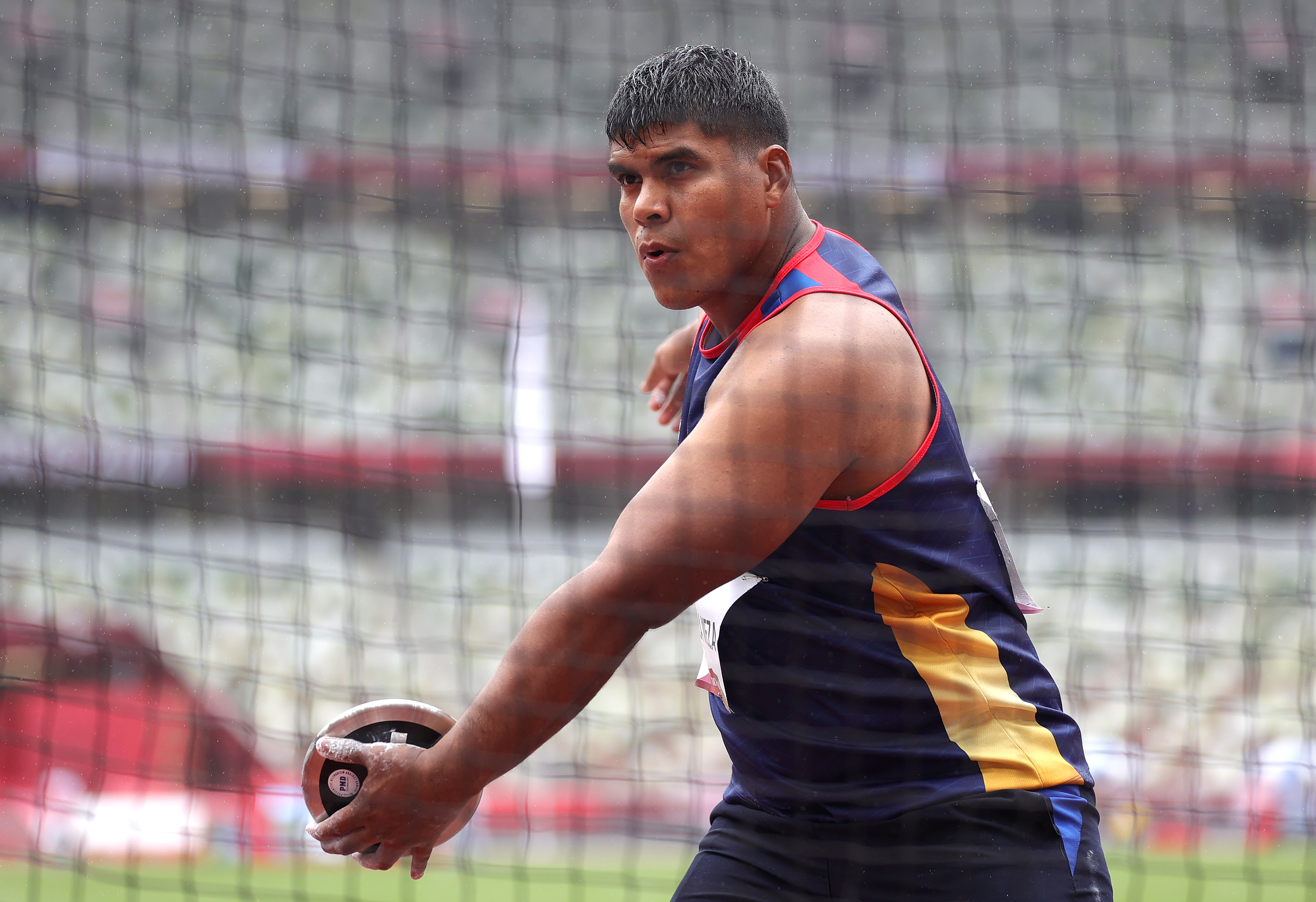
Edwars Alexander Varela Meza of Team Venezuela competes in the Men’s Discus Throw – F37 Final on day 10 of the Tokyo 2020 Paralympic Games at the Olympic Stadium on September 03, 2021 in Tokyo, Japan | Source: Getty Images
However, the celebration was short-lived. The Board of Appeal of Classification (BAC) began an investigation after noting differences between Kumar’s performance during the qualifiers versus the competition. The results concluded that he had faked his actual moving capabilities during the classification process.
Christian Holtz, Managing Director of World Para Sports, stressed that athletes must be honest during these events because the goal of World Para Athletics is to maintain fair competition and the sport’s integrity.
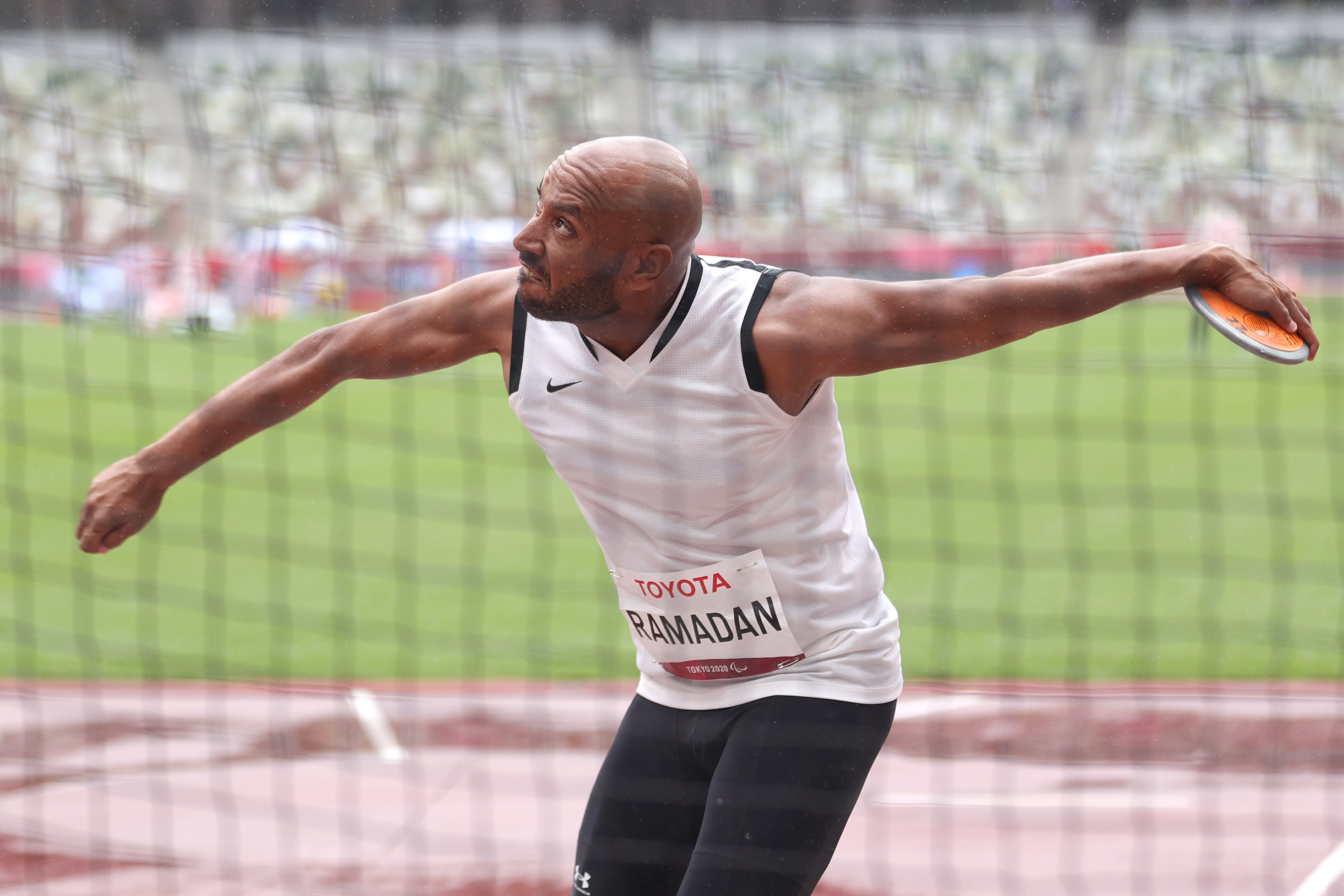
Mohamed Mohamed Ramadan of Team Egypt competes in the Men’s Discus Throw – F37 Final on day 10 of the Tokyo 2020 Paralympic Games at the Olympic Stadium on September 03, 2021 in Tokyo, Japan | Source: Getty Images
After the BAC’s findings, Kumar faced severe consequences. They gave him a two-year ban from para-athletics competitions. This made him ineligible to compete until August 2023. Additionally, he had to return the bronze medal.
Yet, his incident is not as infamous as what happened over 20 years ago.
The Fake Basketball Team
One of the most shocking scandals in the Paralympics happened in Sydney in 2000. The Spanish intellectual disability basketball team was stripped of their gold medal after a shocking discovery.
Carlos Ribagorda, part of the team and an undercover journalist, said that the majority of his teammates had not undergone the necessary medical tests to confirm their disabilities.
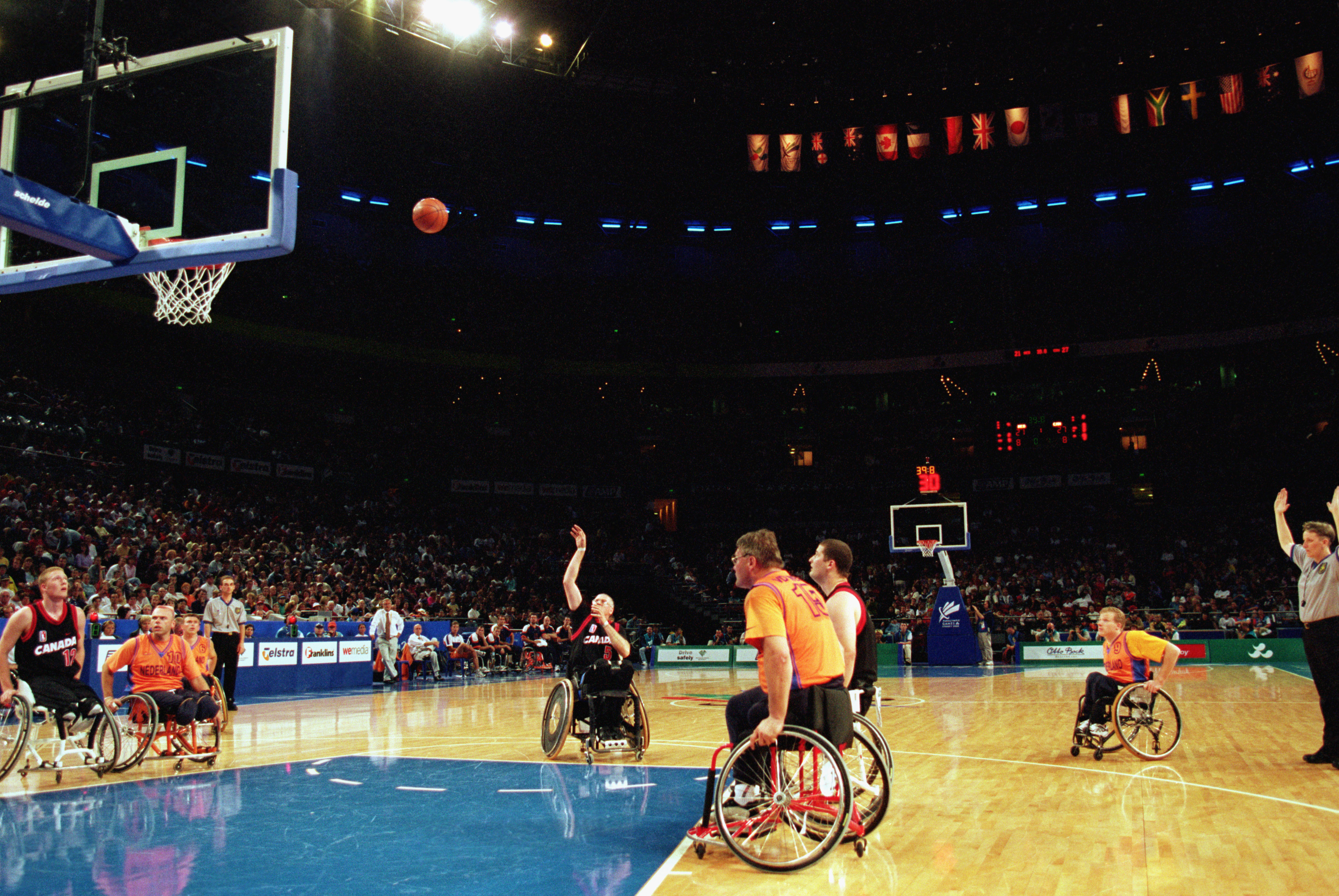
Roy Henderson #5 of Canada shoots during the Men’s Wheelchair Basektball Gold Medal Final against Team Netherlands during the Sydney 2000 Paralympic Games on October 28, 2000 at Sydney Superdome in Sydney, Australia | Source: Getty Images
Later investigations uncovered the extent of the fraud. Out of the 12-member squad, only two players had real intellectual disabilities. The rest were able-bodied athletes who had faked their conditions to compete.
Fernando Martín Vicente, former president of the Spanish Sports Federation for People with Intellectual Disability (Feddi), was the organizer of this fraud. A Spanish court ruled in 2013 that Vicente had planned and carried out the plot to recruit non-disabled players for the team and found him guilty.
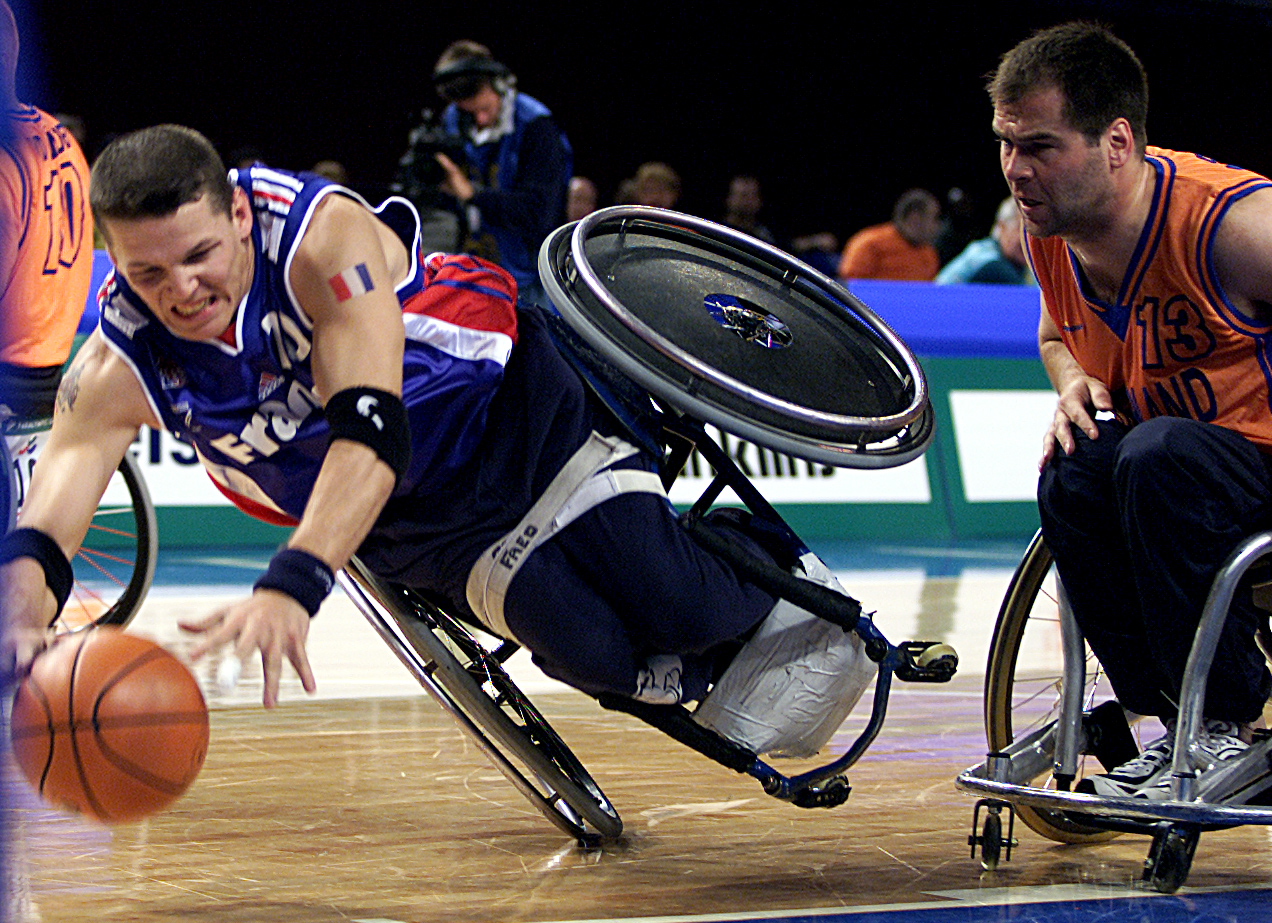
Frederic Guyot of France dives for the ball while Rene Martens of the Netherlands watches on during the Wheelchair Basketball match between France and the Netherlands held at the Sydney Superdome during the Sydney 2000 Paralympic Games | Source: Getty Images
The consequences of this news were far-reaching. Athletes with intellectual disabilities were banned from the 2004 and 2008 Paralympics. What’s more, this incident is infamous, often cited as one of the worst cases of cheating in sports history.
Ramón Torres, one of the two genuinely disabled players on the team, expressed his disappointment. He said, “Fernando Martín says now he doesn’t know anything about it – he can’t do that. Of course, he knew all about it. I thought he was a bigger man. He did something wrong. He should say, ‘I am sorry,’ and I would be very, very pleased.”
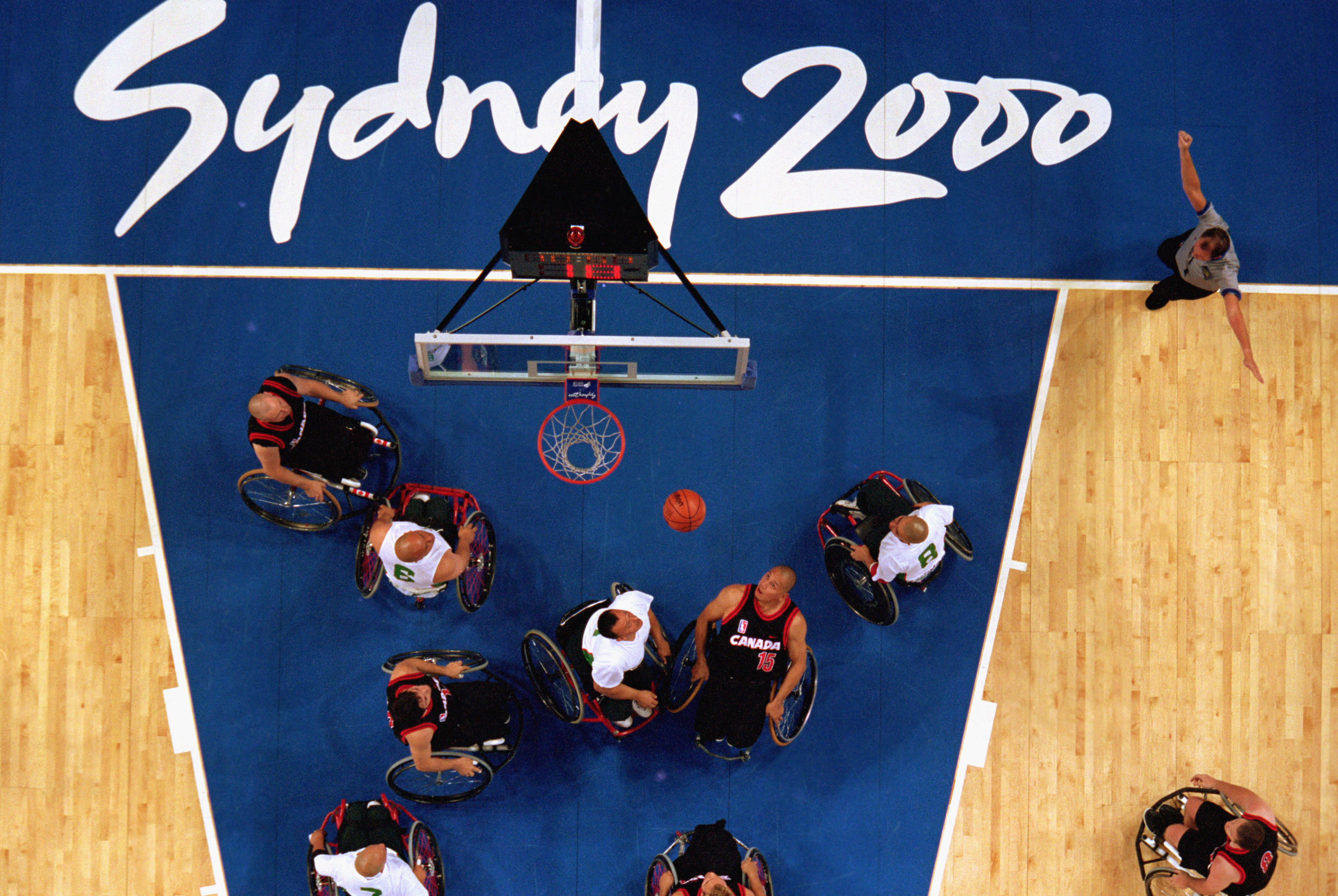
Richard Peter of Team Canada watches the ball in the Men’s Wheelchair Basketball Prelims against Team Mexico during the Sydney 2000 Paralympic Games on October 19, 2000 at Sydney Superdomein Sydney, Australia | Source: Getty Images
Unfortunately, these scandals are just three of many examples of cheating in the Paralympics. Some people will go to great lengths to get an unfair advantage.
The Ways They Cheat
A former classification expert for the IPC has revealed the common practices used to trick the system in order to qualify for the Paralympics.
According to this anonymous expert, many athletes have been seen using certain deceptive tactics. For example, using sedatives and exposing themselves to snow. Another consists of physically restricting their limbs to appear more movement-impaired.
The expert added, “I know a country which coaches athletes on what to do before the classification tests so they’ll get into the most advantageous categories, and I suspect they’re not the only country to do it.”
These revelations have put into question the integrity of the entire event. Tanni Grey-Thompson, a prominent figure in Paralympic sports, said that this is comparable to doping in the regular Olympics.
Furthermore, Grey-Thompson revealed that several British athletes were forced not to say anything about the process. Otherwise, they would be deselected.
The issue extends beyond individual athletes to the system itself. The expert criticized how IPC uses unpaid volunteers as classifiers. Moreover, he believes that some may not be adequately equipped for the job. He asked for more training to stop the injustices of the past from happening again.
Ultimately, the Paralympic Games’s standards and rules have to be fair, easily available, and honest. As this event continues to evolve, it’s vital that athletes and governing bodies alike bond together to preserve integrity and sportsmanship. What’s more, there should be equality and fairness during the entire process



